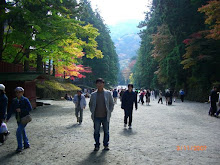 Other emerging economies are producing world-class companies by the dozen. Why aren't the countries of South-East Asia?
Other emerging economies are producing world-class companies by the dozen. Why aren't the countries of South-East Asia?It is easy to forget, now that China and India are all the rage, that until ten years ago South-East Asia was the world's fastest-developing region.
The region has 570m people and had a head start in economic development over much of the rest of Asia. So why does it still have no global consumer brands of the stature of South Korea's Samsung and LG? Where are its equivalents of India's world-conquering Tata Steel, Ranbaxy and Wipro? Or China's market-devouring Huawei and Lenovo? Ask an investor in London or New York to name globally respected South-East Asian firms and the answer is unlikely to consist of much more than Singapore Airlines.
In a recent book, “Asian Godfathers”, Joe Studwell examines this failure in stark terms. The region's business scene remains dominated by old-fashioned, mediocre, sprawling conglomerates, run at the whims of ageing patriarchal owners. These firms' core competence, such as it is, is exploiting their cosy connections with governing elites. Their profits come from rent-seeking: being handed generous state contracts and concessions, or using their sway with officialdom to keep potential competitors out. If they need technology, they buy it from abroad. As a result the region has “no indigenous, large-scale companies producing world-class products and services.”
Corruption is another great burden on business. That is true elsewhere in Asia too, but several South-East Asian countries—notably Indonesia—are afflicted by corrupt and unreliable judicial systems, making it difficult to enforce contracts.
Although it is hard to generalise across Asia, another obstacle to developing world-class businesses is that the five main South-East Asian economies do worse than might be expected—that is, relative to their national incomes—in promoting technology and higher education. Both the lack of fair competition between businesses and the failure to widen access to education may have a common underlying cause: that South-East Asian countries remain in the grip of narrow elites.
The rise of China and India, with their huge home markets, may mean that it is too late for South-East Asia to become big in manufacturing. But it does still have the prospect of producing world-leading firms in other areas where it has an edge. Tourism and hospitality are obvious examples, especially as the region's neighbours become richer. South-East Asia could become both “the Mediterranean and the Caribbean of Asia”, enthuses YTL's Mr Yeoh.
Natural resources are another promising source of future world-beaters. Following Brazil and, closer to home, Australia, South-East Asia is beginning to build global businesses by making the most of what nature has provided. The region already dominates some types of agricultural produce.
The reasons why South-East Asia has been slower than other regions to produce world-class businesses are complex and open to debate. But they do seem to be linked to the perseverance of narrow elites and to the countries' sluggishness in overcoming old rivalries and building an integrated regional market. As a handful of promising companies are showing, not all is lost. Even in today's fierce jungle, South-East Asia can still breed tigers.


